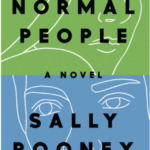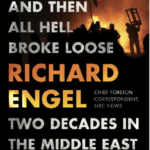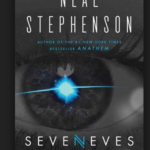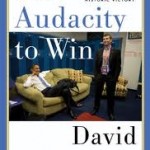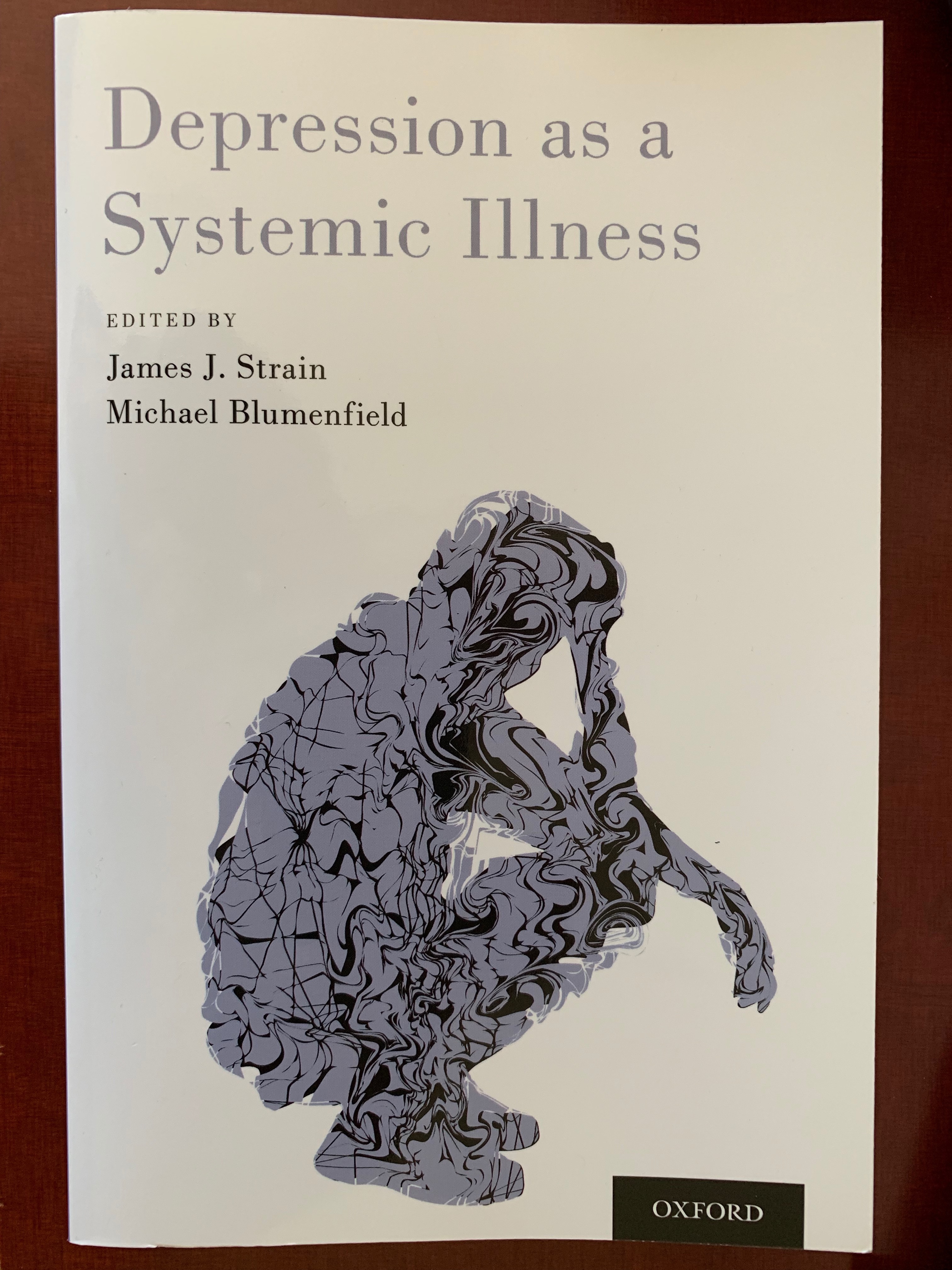September 25th, 2016 — 10:53pm
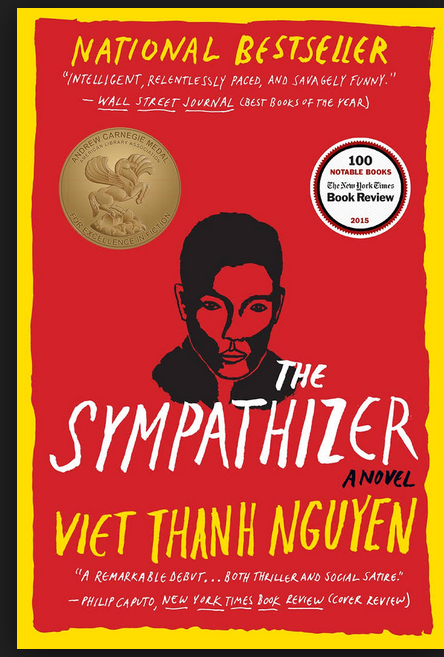 The Vietnam War was of my generation. I served in the Air Force in Texas 1968-1970. I recalled vividly the anti-war protesters of that time. There were many great movies about this war that I have seen which includes Apocalypse Now, Platoon and many others. I have met and spoken with refugees from Vietnam including those who identified themselves as “Boat People.” I have a rudimentary understanding of the French colonialism of Vietnam, the rise of communism, the war between the North and South, America’s entry into it and the ultimate withdrawal and the Fall of Saigon. I can’t say that this well-written book clarified this complicated political history to any great degree. In fact, it may have blurred the margins of some of the issues and muted my simplistic view of them. However, what this novel did provide for me was an insight into the personal viewpoints and struggles that many of the native players have gone through as they overtly and covertly battled each other for the heart and soul of this country.
The Vietnam War was of my generation. I served in the Air Force in Texas 1968-1970. I recalled vividly the anti-war protesters of that time. There were many great movies about this war that I have seen which includes Apocalypse Now, Platoon and many others. I have met and spoken with refugees from Vietnam including those who identified themselves as “Boat People.” I have a rudimentary understanding of the French colonialism of Vietnam, the rise of communism, the war between the North and South, America’s entry into it and the ultimate withdrawal and the Fall of Saigon. I can’t say that this well-written book clarified this complicated political history to any great degree. In fact, it may have blurred the margins of some of the issues and muted my simplistic view of them. However, what this novel did provide for me was an insight into the personal viewpoints and struggles that many of the native players have gone through as they overtly and covertly battled each other for the heart and soul of this country.
This is a story of revolution and counterrevolution. It occurred in an era of brainwashing, torture, hidden moles, intelligence and counterintelligence. I realized that one’s belief and loyalty to a particular political cause may very well depend on where you were born. But on the other hand, it becomes clear in this case that once the communist revolution succeeded in the North and then in the South, the so-called collective society itself became oppressive, corrupt and tyrannical. This is certainly one of the messages of this book.
This book was well researched and well written. In fact, it is the author’s style and way with words that entertains as well as educates the reader. While most of the sentences of this book were of average length, there was one somewhat lengthy one which will give you a taste of this book and the skill and style of the author:
We could not forget the caramel flavor of iced coffee with coarse sugar; the bowls of noodle soup eaten while squatting on the sidewalk; the strumming of a friend’s guitar while we swayed on hammocks under coconut trees; the football matches played barefoot and shirtless in alleys, squares, parks, and meadows; the pearl chokers of morning mist draped around the mountains; the labial moistness of oysters shucked on a gritty beach; the whisper of a dewy lover saying the most seductive words in our language, anh oi; the rattle of rice being threshed; the workingmen who slept in their cyclos on the streets, kept warm only by the memories of their families; the refugees who slept on every sidewalk of every city; the slow burning of patient mosquito coils; the sweetness and firmness of a mango plucked fresh from its tree; the girls who refused to talk to us and who we only pined for more; the men who had died or disappeared; the streets and homes blown away by bombshells; the streams where we swam naked and laughing; the secret grove where we spied on the nymphs who bathed and splashed with the innocence of the birds; the shadows cast by candlelight on the walls of wattled huts; the atonal tinkle of cowbells on mud roads and country paths; the barking of a hungry dog in an abandoned village; the appetizing reek of the fresh durian one wept to eat; and the sight and sound of orphans howling by the dead bodies of their mothers and fathers; the stickiness of one’s shirt by afternoon, the stickiness of one’s lover by the end of lovemaking, the stickiness of our situations; the frantic squealing of pigs running for their lives as villagers gave chase; the hills afire with sunset; the crowned head of dawn rising from the sheets of the sea; the hot grasp of our mother’s hand; and while the list could go on and on and on, the point was simply this: the most important thing we could never forget was that we could never forget.
Although I don’t think that this book would be at the top of my list, it did win a Pulitzer Prize. So if this subject is of interest to you, The Sympathizer should be worth the ride.
To obtain a copy of this book from Amazon, click here
Comment » | FH - Fiction Historical
July 1st, 2016 — 8:58pm
The Unquiet Dead by Ausma Zehanat Khan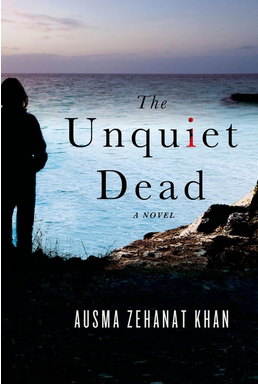
This is a convoluted detective story which ultimately reflects the history of the 1992 Genocide in Bosnia. My reaction and experience to this novel was to be so overwhelmed with the truth and the harsh reality of this modern day horrific set of events which occurred under the watchful eye of the United Nations and the entire world, that I had little interest in the fictionalized story that was being weaved. The appendix at the end of the book which documented numerous such examples stood out in my mind as much more significant than the fictionalized, interspersed chapters in italics, which were supposed to be accounts of people related to the characters in the novel who were killed and tortured. Nothing in the book was as real as the accounts in the appendix at the end of the book. My response to this may be related to the fact that while I knew about the events in Bosnia I had little familiarity, previously, with the details.
If this fictionalized story stimulated any special thoughts in my mind, it would be identifying with a dilemma of one of the main characters in the story. That is, if I knew for sure that I were face-to-face with a horrible murderer of many people who had personally brought about death, rape and torture of many friends and family – and if the authorities had failed to act and bring him to justice despite my efforts to provide documented information about what he had done and his availability to be captured, and if I had the ability and the opportunity to push him over a cliff to his death and never be found out to be the killer, would I do it?? I suppose that is a no brainer. The book did suggest the question also, should the police arrest me if they believed I did it?
To obtain a copy of this book from Amazon, please click here
Comment » | FH - Fiction Historical, FM - Fiction Mystery
January 20th, 2015 — 10:30am
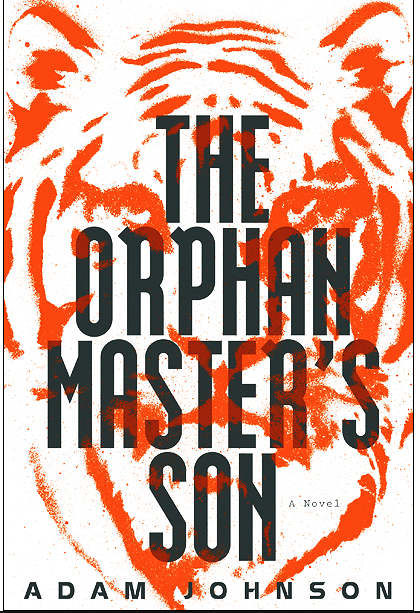 The Orphan Master’s Son by Adam Johnson- This book reminded me of the many science fiction stories I read as a teenager. To me it felt as if we were learning about life on an alien planet. In this society, there is no kind of a stable life style or comfortable relationships. People can be whisked away, to do some work detail, sometimes never to return. If a wife has her husband taken away she might be assigned a substitute husband. On this planet children’s values come from loudspeakers that tell fables or bizarre truth or near truth all the time. Since there is no pretense that this is life on another planet, the reader might try to put it in prospective of something we have known about. Is this a version of the Holocaust where one group of people were completely devalued and then attempts made to ship them off and kill them all? However, here there isn’t one group of people that is subject to annihilation, it can be just about anyone. “ 1984” and Big Brother come to mind but we don’t have to think about a futuristic society because we are already told we are talking about North Korea and the way its rulers or should I say “Ruler” controls everyone’s life. In fact one of the central characters is Kim Jon II,, himself (referred to as “ Dear Leader”), the recently deceased leader of that country who is the father of the actual leader today Kim Jung Un. So if we take the story at face value are we being told the behind the scenes horrible life of the people who live in North Korea? Apparently the truth is that it is very difficult to be confident about what goes on in North Korea today. Adam Johnson, the author has visited the country and tried to speak with people who live there but who usually won’t speak to outsiders. He has told of interviews that he has had with defectors who have come over to “our side.” Johnson himself in interviews has admitted that much of the horrors in his book , he has made up although founded, no doubt ,on the stories he has read and things he has seen. Living in captivity, without descent food, eating flowers, having no toilet, being tortured by the “ autopilot “and ultimately becoming inhuman is apparently not an unusual story. The book is written well and the shifts in time and person as one character inhabits another character are challenging to follow but does help to take us to a deeper reveal of this horrible society that we are being told about. I have tried to understand the awarding of the Pulitzer Prize for this book and perhaps it was for the unique journey that the author chose to take us on. All the details can’t be accurate but the depiction probably is and thus Mr. Johnson has moved the curtain to show us one of the truly tyrannical societies that exists today.
The Orphan Master’s Son by Adam Johnson- This book reminded me of the many science fiction stories I read as a teenager. To me it felt as if we were learning about life on an alien planet. In this society, there is no kind of a stable life style or comfortable relationships. People can be whisked away, to do some work detail, sometimes never to return. If a wife has her husband taken away she might be assigned a substitute husband. On this planet children’s values come from loudspeakers that tell fables or bizarre truth or near truth all the time. Since there is no pretense that this is life on another planet, the reader might try to put it in prospective of something we have known about. Is this a version of the Holocaust where one group of people were completely devalued and then attempts made to ship them off and kill them all? However, here there isn’t one group of people that is subject to annihilation, it can be just about anyone. “ 1984” and Big Brother come to mind but we don’t have to think about a futuristic society because we are already told we are talking about North Korea and the way its rulers or should I say “Ruler” controls everyone’s life. In fact one of the central characters is Kim Jon II,, himself (referred to as “ Dear Leader”), the recently deceased leader of that country who is the father of the actual leader today Kim Jung Un. So if we take the story at face value are we being told the behind the scenes horrible life of the people who live in North Korea? Apparently the truth is that it is very difficult to be confident about what goes on in North Korea today. Adam Johnson, the author has visited the country and tried to speak with people who live there but who usually won’t speak to outsiders. He has told of interviews that he has had with defectors who have come over to “our side.” Johnson himself in interviews has admitted that much of the horrors in his book , he has made up although founded, no doubt ,on the stories he has read and things he has seen. Living in captivity, without descent food, eating flowers, having no toilet, being tortured by the “ autopilot “and ultimately becoming inhuman is apparently not an unusual story. The book is written well and the shifts in time and person as one character inhabits another character are challenging to follow but does help to take us to a deeper reveal of this horrible society that we are being told about. I have tried to understand the awarding of the Pulitzer Prize for this book and perhaps it was for the unique journey that the author chose to take us on. All the details can’t be accurate but the depiction probably is and thus Mr. Johnson has moved the curtain to show us one of the truly tyrannical societies that exists today.
Comment » | FG - Fiction General, FH - Fiction Historical
December 25th, 2014 — 5:52pm
Unbroken by Laura Hillenbrand– I read this book and wrote this review prior to seeing the movie by the same name. I do plan to see it and will review it in FilmRap.net.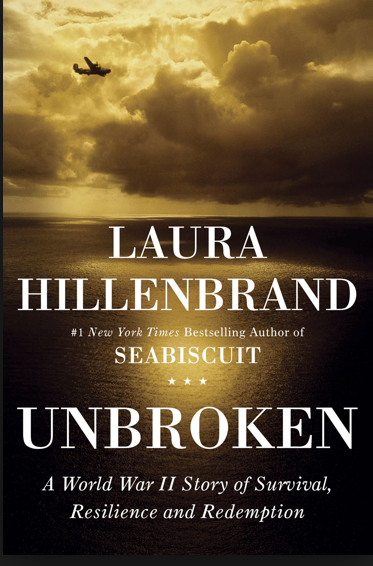 (click here to see review)
(click here to see review)
Louie Zampereini was an Italian-American boy from a poor family who was raised in Torrance, California. He was a rough and tumble kid who had a propensity for stealing things and getting into trouble. He was fast on his feet and ultimately developed into a record breaking track star who participated in the 1936 Olympics in Berlin, Germany. When World War II came about he signed up for the Army Air Force and became a bombardier. Early in the war his plane on a mission crash-landed in the Pacific Ocean where he and two other airman survived in rafts for 47 days as they drifted 2000 miles. During this time they battled starvation, dehydration, hungry sharks and storms as well as Japanese planes that strafed them with machinegun fire. If you think this was bad you should see what happened after they were rescued at sea…by the Japanese and made prisoners of war (although they were never treated according to the Geneva Convention rules for POWs). We see how things were absolutely terrible and how demeaning the treatment of American Prisoners was, ironically clearly much worse than the German Nazis reportedly dealt with their American captives. Louis was apparently treated much more savagely once he was recognized as an Olympic track star.
Being a member of the Silent Generation and having come of age in the decade following WWII, I grew up as a kid reading all sorts of stories and seeing all the movies about this war. Even now as an older guy I am still drawn to a book such as this one. I am sorry to say that reading about the awful treatment by the Japanese of the helpless American prisoners, my old negative prejudiced feelings about the Japanese people were awakened. I know these are irrational and are related to issues from a previous generation. Although a few kind guards were mentioned, there clearly was, at that time, an institutionalized culture of cruel, vicious treatment of the Americans who were starved, tortured and made to do slave labor. We see these atrocities through the eyes of Zamperini who was officially considered dead by his government although his family seemed to have never given up hope for him. We trace his ordeal as he is moved to various prison camps and was never registered with the Red Cross as a POW although that was the usual procedure mostly followed by the Japanese who nevertheless hid their maltreatment of their captives.
The book does not end with his liberation at the end of the war. It follows Zamperini’s reintegration into civilization and his seeming resilience but also his very dark and destructive periods, which were almost as bad as you can imagine. The author Laura Hillenbrand, who previously wrote the best seller Seabiscuit had access to diaries, newspaper articles, radio and television interviews and a gigantic trove of people to interview who knew Zamperini in the various phases of his life including those who were imprisoned with him and close family members. She also had the opportunity to interview Zamperini himself more than 75 times and became quite close to him before he died in July of 2014 at the age of 97.
At times the book seems overly repetitious. Perhaps it felt that way because it was so painful. I am not giving away the ending because the title clearly does that but this book is also about the human spirit. As an outsider who didn’t live through his ordeal and didn’t live through this time as an adult, I can only try to get into Louis’ head through this book. When we try to do this, there is a tendency for us to be traumatized. At one point in the book we learn that recently there was a commemorative memorial made by the local Japanese people at the site of one of the camps at which Zamperini spent much of his time. It honored and remembered the prisoners who were there, many of them who had died there. We are also told that there are pictures of six birds flying in the sky as symbols of the memory for 6 of the prison guards who were tried as war criminals and executed! On the day that I am writing this review there is a front page article in the New York Times that discusses the current Japanese Prime Minister Abe and his hope to bring about a change in the Japanese constitution which was written post war by the Americans and forbids Japan from ever going to war again. Time marches on.
1 comment » | B - Biography, HI - History
 The Vietnam War was of my generation. I served in the Air Force in Texas 1968-1970. I recalled vividly the anti-war protesters of that time. There were many great movies about this war that I have seen which includes Apocalypse Now, Platoon and many others. I have met and spoken with refugees from Vietnam including those who identified themselves as “Boat People.” I have a rudimentary understanding of the French colonialism of Vietnam, the rise of communism, the war between the North and South, America’s entry into it and the ultimate withdrawal and the Fall of Saigon. I can’t say that this well-written book clarified this complicated political history to any great degree. In fact, it may have blurred the margins of some of the issues and muted my simplistic view of them. However, what this novel did provide for me was an insight into the personal viewpoints and struggles that many of the native players have gone through as they overtly and covertly battled each other for the heart and soul of this country.
The Vietnam War was of my generation. I served in the Air Force in Texas 1968-1970. I recalled vividly the anti-war protesters of that time. There were many great movies about this war that I have seen which includes Apocalypse Now, Platoon and many others. I have met and spoken with refugees from Vietnam including those who identified themselves as “Boat People.” I have a rudimentary understanding of the French colonialism of Vietnam, the rise of communism, the war between the North and South, America’s entry into it and the ultimate withdrawal and the Fall of Saigon. I can’t say that this well-written book clarified this complicated political history to any great degree. In fact, it may have blurred the margins of some of the issues and muted my simplistic view of them. However, what this novel did provide for me was an insight into the personal viewpoints and struggles that many of the native players have gone through as they overtly and covertly battled each other for the heart and soul of this country.
